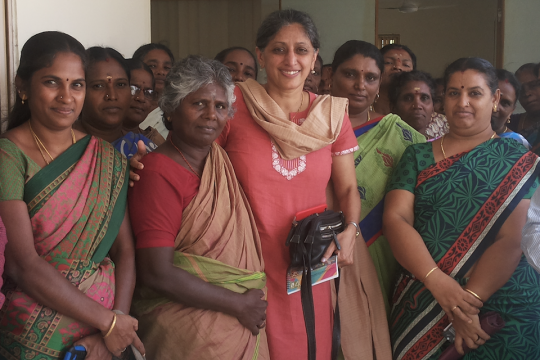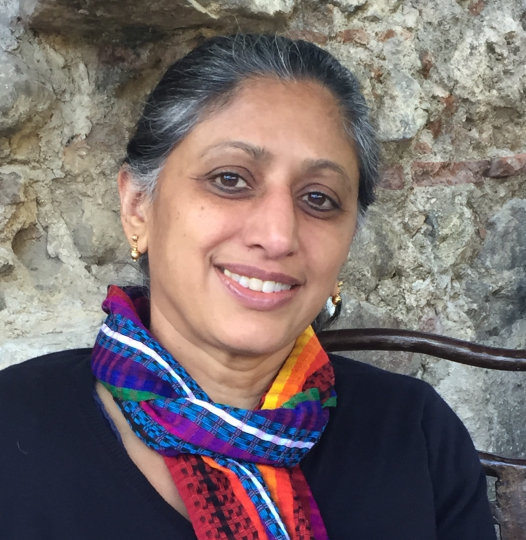Managing trade-offs and finding a win-win between communities’ welfare and conservation – that is the preliminary joint topic of two exciting keynote presentations you can look forward to at EfD’s Annual Meeting in Ghana in October. Meet one of the two presenters of these keynote speeches, the renowned economist Priya Shyamsundar!
Priya Shyamsundar’s research embraces a wide scope of topics – from local to global, and urban to rural environmental problems. Her activities have brought her to numerous countries all over the world. There is one golden thread though that runs through her work: The passion for conservation and the people affected by conservation.
Eye-opening project
She is currently Lead Economist at The Nature Conservancy and holds several positions in other organizations connected to environment and development. She has done extensive consultancy work for the World Bank. Many people know her as the co-founder of SANDEE which is a research and capacity-building organization aimed at identifying solutions to shared environmental problems across South Asia.
Her interest in environmental and development economics got a kickstart when she, at the age of 22, got a job as a project associate at an NGO, the Institute of Social Studies Trust. This project included field research in Karnataka and Kerala, India, and analyses to better understand the working lives of poor women.
“My first job really opened my eyes to the complex interactions among poverty, women’s rights and natural resource management,” says Priya Shyamsundar.
Interventions can have unwanted effects
They studied women who were collecting a forest product, Gardenia Cambogia, a sort of vinegar. The women had very few sources of income and this was their most important way to get cash. The product became popular and the market grew. So the government decided to create a formal institution where the product was auctioned. This meant that businessmen came in and bought the rights and women left the market, which was not informal anymore. The businessmen began to collect in an aggressive, unsustainable way due to the market demand and institutional change.
“This made me really interested in the disruptive implications of interventions, how people are motivated to act, and the role of economic systems, and institutions.”
Important to understand the economics of strategies on the ground
She is currently working on a project about identifying adaption options that would help populations in Colombia, the Dominican Republic and Kenya, to map their vulnerability to climate hazards, and validate these findings with field research on the ground. What actions are they taking right now? What possible nature-based solutions could mitigate their vulnerability? What are the costs of those solutions? What investments are needed?
Another project is related to 30 by 30, a worldwide initiative for governments to designate 30% of Earth's land and ocean area as protected areas by 2030.
“We are trying to understand the economics of those protection strategies. Who bears the cost, and the benefits?”
Will present a framework for conservation
Priya Shyamsundar has known the founders of EfD for decades and sees herself as a part of the “extended EfD family”. This presentation will be made jointly with one of EfD’s original members, Edwin Muchapondwa.
How will you divide the presentation between the two of you?
“I have a framework for bringing about equitable conservation that I will talk about. My part will be more general. Edwin Muchapondwa will talk about special case studies on wildlife conservation in Africa.”
The keynote presentation will also be broadcast as a webinar. Look out for news on EfD’s website, so you don’t miss this!
By: Petra Hansson
About Priya Shyamsundar
At The Nature Conservancy TNC, she leads a Global Science program on economics and governance that seeks to integrate human well-being considerations into the design, implementation and scaling of conservation programs. Previously, Priya was the Founder and Director of SANDEE, a research and capacity building network that examines and identifies solutions to shared environment-development challenges across seven countries in South Asia. Priya has served on advisory committees associated with the UN Decade on Ecosystems Restoration, Government of India, the World Bank, and the International Geosphere-Biosphere Program. Priya currently has positions in the SANDEE steering committee, Nepal and the Advisory Board of the Journal Ecology, Economy and Society, India.

